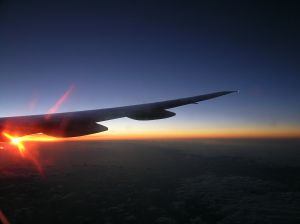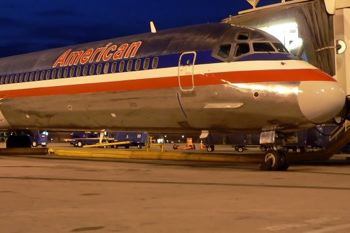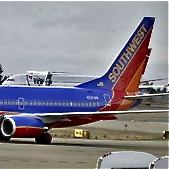 In travel media, as in many other parts of the media universe, dozens of press releases cross the screens of most journalists every day. A surprisingly small number contain useful, usable information.
In travel media, as in many other parts of the media universe, dozens of press releases cross the screens of most journalists every day. A surprisingly small number contain useful, usable information.
But very, very occasionally, a press release actually can be news.
And so it is with American Airlines’ recent missive detailing such changes as a $15 fee for all checked bags, as well as some other interesting “Revenue Growth Efforts”…
Just in case you’re wondering, “Revenue Growth Efforts” is basically a fancy PR euphemism for “We Are Trying to Get More Money From You.”
This widely distributed release from AA spells out in frank detail some of the challenges facing the industry.
Consider that a $10 increase in the price per barrel of oil costs American $800 million in extra expense annually. Now consider that oil has surged from nearly $92 per barrel in December 2007 to more than $129 per barrel as of May 20, 2008 – that means American is incurring nearly $3 billion more in annual expenses since the start of the year. To depict how sudden this surge has been, since March, when crude averaged about $105 per barrel, the price has skyrocketed nearly $25, leaving the airline with about $1.9 billion more in annual expenses in just seven weeks. (emphasis theirs)
This situation is even a bit worse than many had estimated, with a spate of recent stories estimating that AA was losing about $3.3 million per day. The cost increase works out to over $5 million per day for fuel for the rise of just the last seven weeks.
Other airlines, then, must be feeling the pinch, too.
 This makes it a bit more understandable that American’s press release essentially brags that “Since AMR [Ed.-AMR is the parent company of AA] released its first quarter 2008 financial results on April 16, American has participated in or led 15 fare increases, 14 of which were at least partially successful.”
This makes it a bit more understandable that American’s press release essentially brags that “Since AMR [Ed.-AMR is the parent company of AA] released its first quarter 2008 financial results on April 16, American has participated in or led 15 fare increases, 14 of which were at least partially successful.”
In addition, American is increasing fees for certain services, ranging from reservation service fees to pet and oversized bag fees.
Ticketing fees are rising from $15 to $20 and to $30 if you re-book at the airport. In-cabin pet fees rise to $100 from $80. Change fees go from $100 to $150 for domestic and are rising 50 percent for international tickets to between $150 and $300. And oversized bags will result in a charge of $150, up from $100.
The result of all these fee increases is that, as with European low-cost carriers, you may be paying less for your ticket than you do in fees, taxes and extra charges. And, with customer satisfaction continuing to plunge, service levels appear to be falling toward European low-cost standards, too.
Rather ironically, America’s chief “low-cost carrier” Southwest Airlines continues to lead customer service surveys, far outpacing the legacy carriers that have struggled so publicly. Southwest also has the honor of being the most consistently profitable air carrier.
 So how does Southwest do it? One reason is fuel hedges. Fuel hedges are essentially long-term contracts that lock in lower gas prices.
So how does Southwest do it? One reason is fuel hedges. Fuel hedges are essentially long-term contracts that lock in lower gas prices.
For Southwest, this means it locked in rates of $51 per barrel for 70 percent of its fuel needs this year. With oil soaring past $130 per barrel, this represents a massive competitive advantage that its rivals have been unable to match.
But beyond this, Southwest pioneered one of the most effective parts of European low-cost carriers’ business models. No, not the charge-a-fee-for-everything-except-using-the-bathroom model that American appears to be embracing.
Rather, Southwest generally focuses on point-to-point travel rather than really developing a hub-and-spoke system like the legacy carriers have. This allows them greater flexibility, and makes them less dependent on any one airport, which in turn improves their on-time performance. And with profit margins down across the industry, this improvement may give that crucial boost to the bottom line.
Of course, as the recent FAA maintenance scandal shows, this emphasis on on-time performance may have serious consequences.
But it could also be the reason that Southwest has been the only consistently profitable airline in the last two decades of American aviation history.
By New Media Manager Matt Calcara for PeterGreenberg.com.
Check out our previous coverage of American’s maintenance and fiscal woes:
FAA Maintenance Fallout Merry-Go-Round: American Airlines Again
Whistleblowers, the FAA and Airworthiness
Airline Safety Starts With Maintenance
FAA Inspection-Gate Causes Cancellations
Southwest Suspended, FAA Employees Reassigned
Southwest Flew Unsafe Planes, FAA Under Fire
And don’t forget to read more from Peter’s Travel Detective Blog.












